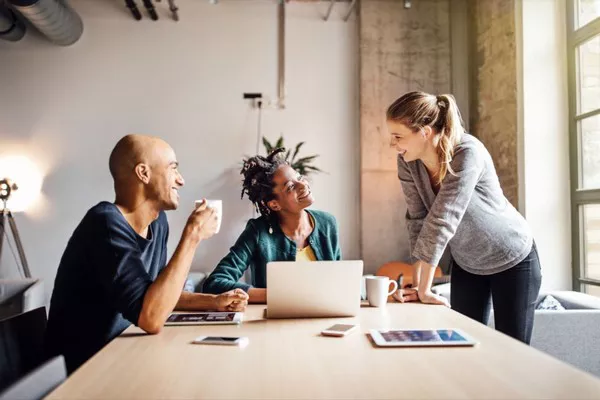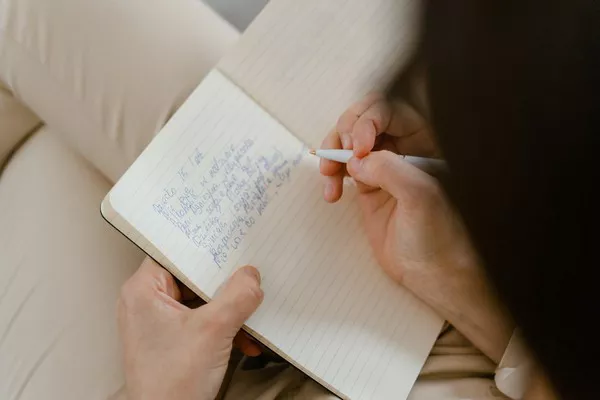Creativity is not just a talent reserved for artists, musicians, or writers; it is a fundamental aspect of human nature. Creative confidence is the belief in one’s ability to create, innovate, and solve problems in original ways. It enables individuals to express their thoughts and ideas freely, approach challenges with an open mind, and navigate the complexities of life with resilience and adaptability. This article explores the concept of creative confidence, its significance, and practical strategies for developing it in our lives.
Understanding Creative Confidence
Creative confidence encompasses several dimensions, including self-efficacy in creative pursuits, the ability to generate ideas, and the courage to take risks in the creative process. Psychologist Albert Bandura, known for his work on self-efficacy, defines it as the belief in one’s capabilities to achieve a goal or an outcome. In the context of creativity, this means having the confidence to believe that you can generate unique ideas, tackle challenges with innovative solutions, and express yourself authentically.
The Importance of Creative Confidence
Problem Solving: Creative confidence equips individuals with the mindset to approach problems from various angles, enabling them to devise innovative solutions.
Self-Expression: It fosters a sense of self-acceptance and allows individuals to express their thoughts and emotions without fear of judgment.
Resilience: Creative confidence nurtures resilience, as individuals learn to embrace failures and setbacks as part of the creative journey, viewing them as opportunities for growth.
Collaboration: It enhances collaboration, encouraging individuals to share their ideas and build on the contributions of others, leading to richer, more diverse solutions.
Adaptability: In an ever-changing world, creative confidence promotes adaptability, empowering individuals to navigate uncertainty and embrace new challenges.
Barriers to Creative Confidence
Before delving into strategies for developing creative confidence, it is crucial to recognize the barriers that often hinder individuals from embracing their creative potential. These barriers may include:
Fear of Failure: The fear of making mistakes or producing subpar work can inhibit creativity. Individuals may hold back their ideas, fearing negative feedback or rejection.
Perfectionism: The desire for perfection can stifle creativity, leading individuals to avoid taking risks or exploring new avenues.
Comparison: Constantly comparing oneself to others can lead to self-doubt and diminish one’s creative voice.
Negative Self-Talk: Internal criticism and negative beliefs about one’s abilities can erode creative confidence, making it difficult to pursue creative endeavors.
Lack of Practice: Creativity, like any skill, requires practice. Individuals who do not engage in creative activities regularly may feel less confident in their abilities.
Strategies to Develop Creative Confidence
Now that we understand the significance of creative confidence and the barriers that can impede it, let’s explore practical strategies to cultivate this essential quality.
1. Embrace a Growth Mindset
A growth mindset, as proposed by psychologist Carol Dweck, emphasizes the belief that abilities can be developed through dedication and hard work. Adopting a growth mindset fosters resilience and a love for learning, enabling individuals to embrace challenges and view setbacks as opportunities for growth.
Tips for Embracing a Growth Mindset:
Reframe Challenges: Instead of viewing challenges as threats, see them as opportunities to learn and grow.
Celebrate Effort: Focus on the effort put into creative endeavors rather than solely on the outcome.
Learn from Criticism: Approach constructive criticism as valuable feedback that can help improve your skills.
2. Create a Safe Space for Creativity
Establishing an environment that encourages creative expression is essential for developing creative confidence. A safe space allows individuals to explore ideas freely without fear of judgment or criticism.
Tips for Creating a Safe Space:
Set Boundaries: Establish rules that promote respect and openness during brainstorming sessions or creative activities.
Encourage Exploration: Allow for experimentation and play, recognizing that not every idea needs to be polished or perfect.
Celebrate Diversity: Embrace diverse perspectives and ideas, fostering an inclusive atmosphere that encourages participation from everyone.
3. Practice Regularly
Creativity thrives with practice. Engaging in creative activities regularly helps build skills, boost confidence, and reinforce the belief that you can create.
Tips for Practicing Creativity:
Set Aside Time: Dedicate specific time slots each week for creative activities, whether it’s drawing, writing, or exploring new hobbies.
Try New Things: Step outside your comfort zone by experimenting with different forms of creativity, such as painting, music, or cooking.
Join Workshops or Classes: Enroll in creative workshops or classes to gain new skills, meet like-minded individuals, and receive constructive feedback.
4. Cultivate Curiosity
Curiosity is a driving force behind creativity. Developing a curious mindset encourages exploration and the pursuit of new ideas and experiences.
Tips for Cultivating Curiosity:
Ask Questions: Foster a habit of asking open-ended questions about the world around you, encouraging deeper exploration and understanding.
Explore New Perspectives: Engage with diverse viewpoints and experiences to broaden your understanding and spark new ideas.
Stay Open to Inspiration: Allow yourself to be inspired by art, nature, music, or everyday experiences. Keep a journal or sketchbook to capture ideas and observations.
5. Challenge Negative Self-Talk
Overcoming negative self-talk is crucial for building creative confidence. Replacing self-critical thoughts with positive affirmations can enhance your belief in your creative abilities.
Tips for Challenging Negative Self-Talk:
Identify Negative Thoughts: Recognize when negative thoughts arise and examine their validity.
Practice Self-Compassion: Treat yourself with kindness and understanding, acknowledging that everyone makes mistakes and faces challenges.
Use Positive Affirmations: Create a list of positive affirmations related to your creative abilities and repeat them regularly to reinforce your self-belief.
6. Seek Feedback and Collaboration
Engaging with others in the creative process can provide valuable insights and boost confidence. Constructive feedback from trusted individuals can help refine ideas and strengthen skills.
Tips for Seeking Feedback:
Share Your Work: Don’t hesitate to share your creative endeavors with friends, family, or mentors who can provide constructive feedback.
Collaborate with Others: Collaborate on creative projects to benefit from different perspectives and ideas. Teamwork often leads to more innovative outcomes.
Be Open to Critique: Approach feedback with an open mind, viewing it as an opportunity for growth rather than criticism.
7. Reflect on Your Creative Journey
Regularly reflecting on your creative journey can help you recognize your progress, strengths, and areas for improvement. This practice can reinforce your creative confidence and motivate you to keep going.
Tips for Reflecting:
Keep a Creative Journal: Document your creative experiences, thoughts, and feelings to track your progress and insights.
Celebrate Achievements: Take time to celebrate your successes, no matter how small. Acknowledging your accomplishments reinforces your belief in your abilities.
Learn from Challenges: Reflect on any challenges or setbacks and identify what you learned from them. This practice fosters resilience and adaptability.
Conclusion
Developing creative confidence is a vital aspect of personal growth and self-expression. By embracing a growth mindset, creating a safe space for creativity, practicing regularly, cultivating curiosity, challenging negative self-talk, seeking feedback, and reflecting on your journey, you can foster a deep sense of creative confidence. Remember, creativity is a skill that can be nurtured, and everyone has the potential to unleash their unique creative voice. With time, patience, and dedication, you can cultivate the confidence to express yourself freely and embrace the creative journey ahead.
Related Topics:



























